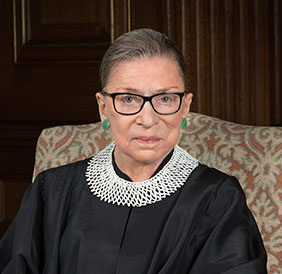With most Americans, I mourn the death of Supreme Court Associate Justice Ruth Bader Ginsburg.
Our politics — particularly whether we identify as liberal or conservative — color our opinions of Justice Ginsburg’s accomplishments, judicial rulings, and famous dissents.
Here’s one thing on which liberals and conservatives can agree (at least, her colleagues on the Supreme Court did): Justice Ginsburg was a fine writer.
In her memory, I’ve compiled a few of RBG’s reflections and bits of advice on writing.
Conveying ideas
“At Cornell University, my professor of European literature, Vladimir Nabokov, changed the way I read and the way I write. Words could paint pictures, I learned from him. Choosing the right word, and the right word order, he illustrated, could make an enormous difference in conveying an image or an idea.”
“Ruth Bader Ginsburg’s Advice for Living,” NY Times, October 1, 2016
Getting it right
“I go through innumerable drafts. I try hard, first of all, to write an opinion so that no one will have to read a sentence twice to get what it means.”
Interviews with Supreme Court Justices by Bryan A. Garner, Scribes Journal of Legal Writing, 2010
Cutting the fat
[Speaking of her undergraduate constitutional law professor] “In his gentle way, he suggested that my writing was a bit elaborate. I learned to cut out unnecessary adjectives and to make my compositions as spare as I could.”
Jargon and plain language
“Any profession has its jargon. The sociologists have lots of fancy words, and some of them think somehow that puts them on a higher plane. I can’t bear it. I don’t even like legal Latin. If you can say it in plain English, you should.”
What happens if you write too much
“Lawyers … fill the brief unnecessarily, not realizing that eye-fatigue and even annoyance will be the response they get for writing an overlong brief.”
Learning to write better
“I’m always learning about writing. I read and admire someone’s writing and say, ‘That’s a good way of putting something. I’ll remember and use it.'”
Respect
“Even in the most emotion-laden, politically sensitive case, effective opinion writing does not require a judge to upbraid colleagues for failing to see the light or to get it right.”
“Speaking in a Judicial Voice,” New York Law Review, 1992


